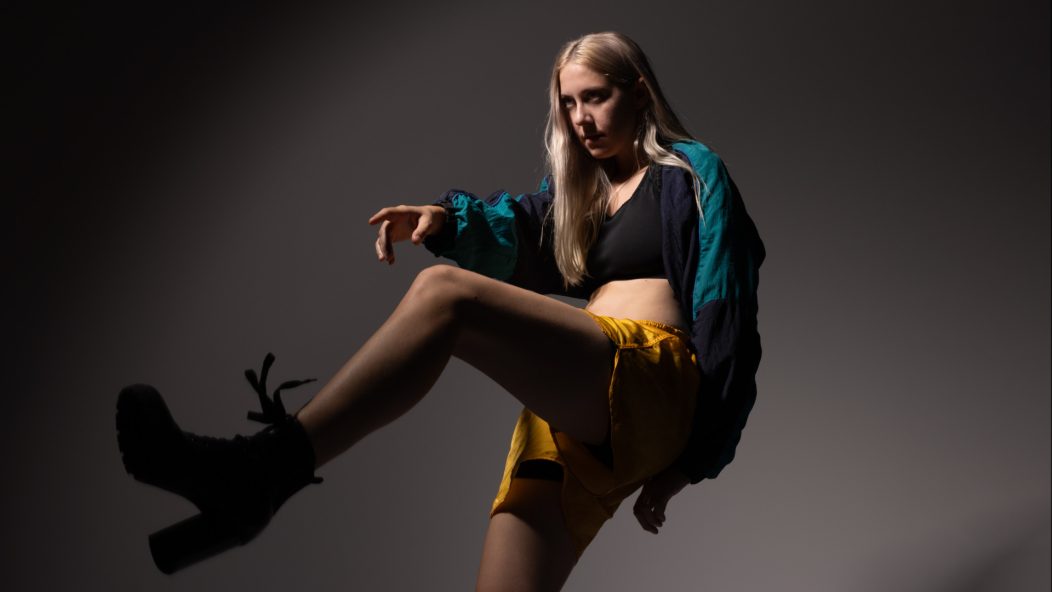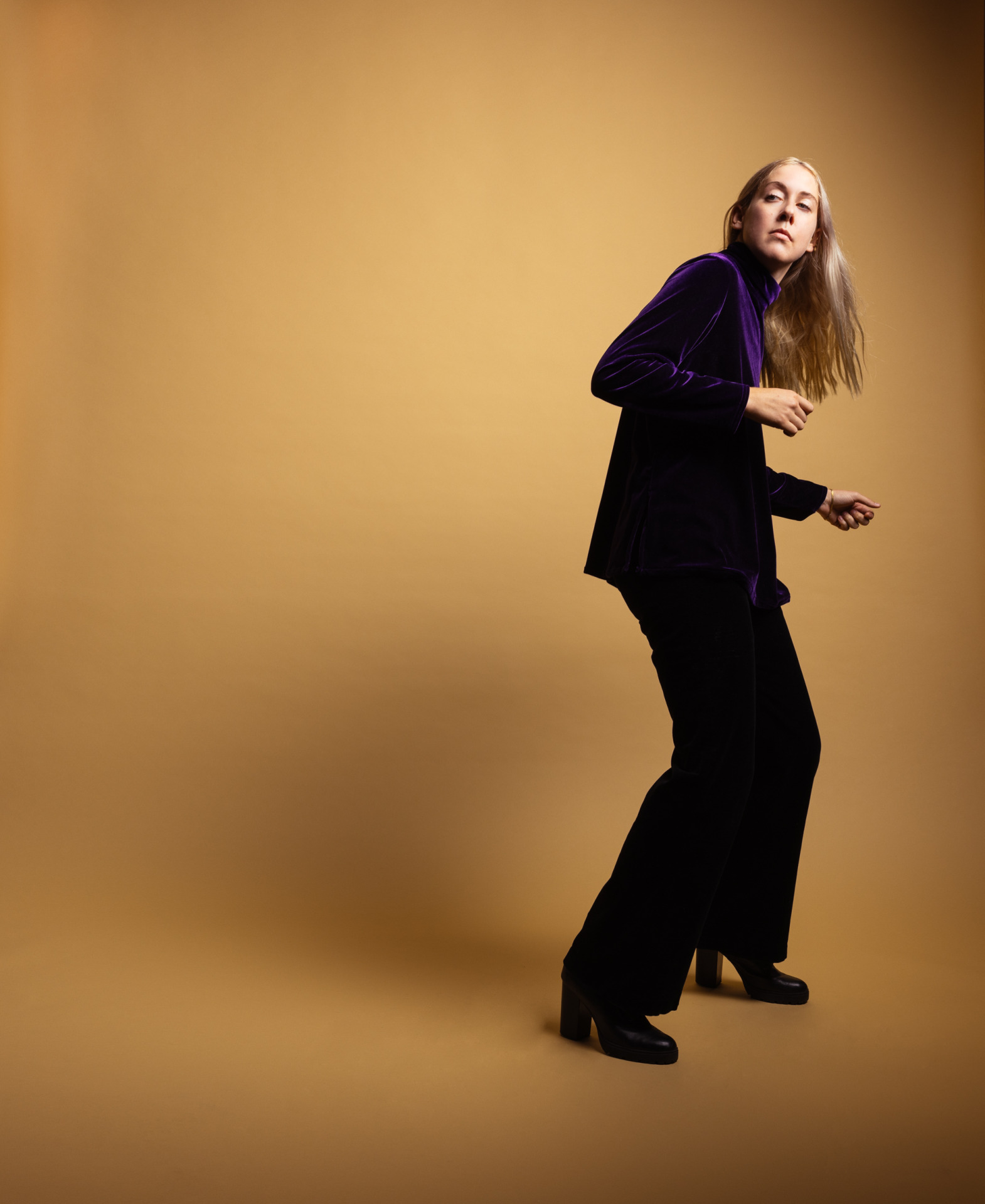
TORRES is still finding hope
Our bodies replace billions of cells every day. There’s no such thing as pure stasis, physically, emotionally, or contextually. However, it takes an incredible amount of self-awareness to understand intrinsic changes in real time, and find both meaning and purpose in the mess. It’s a challenging path that Mackenzie Scott, under the moniker TORRES, has brazenly embarked on.
Over six studio albums, the indie-rocker has instinctually reflected on their life, and their reaction to it, all while wading through its ups and downs. It’s led to a discography that is diverse, authentic, and drenched with overwhelming emotion. Earlier releases entertained a sense of urgency. Uncomfortable, complicated memories unraveled over distorted, synthy riffs. As Scott continued to tap into themself beautifully, processing very real peaks and valleys in front of an audience, the changes around them continued to be the key influence.
Read more: 24 of the most exciting rising artists to watch in 2024
And lately, things have been getting better. On their new album, What an enormous room, not only does Scott meet us with a light in the dark but they’ve delivered a message of hope, another side. And this is just what I heard, upon listening to one of the album’s singles, “i got the fear.” This poetic track dipped from a guttural description of depression to a boisterous, anthemic hook. I listened on a loop for weeks, forming my own curious relationship with the song. Finally, I sat down with Scott to hear the story of how they’d arrived there themselves.
Before I even dig into the new album, I’d love to start by asking you what might seem like a pretty general question. How would you describe your relationship to music?
It's multifaceted. But from the performance perspective and the writing perspective, it's a vehicle for expression and connection.
How do you feel like that has changed throughout your career? Given that your sound has shifted and the context has shifted each album, I’d imagine your relationship to music and how it’s served you go hand-in-hand.
As a person, I'm changing all the time. I think we all are. I feel like a different person every day, in a way. I would say for me, the music that I make is a reflection of those kinds of constant changes. In the past, I used music as a tool to feel less alone, and now I use it more as a tool to try and help other people feel less alone.
That definitely shows up on your new album. There’s this clear lyrical departure from your last project to this one in terms of what you're talking about and how. Your work has always felt emotion-driven, but the level and types of emotion feel different.
I'm in a different place than I was when I wrote those other albums. My focus is a little bit different — well, a lot different. And the world is a lot different. My circumstances have changed. I have a family now. I have a support system. I'm married. I have a stepchild. I have a lot more stability in general. First of all, I'm extremely grateful to be in that position. I recognize what a privilege that is.
Being able to use that as a grounding mechanism to help me look beyond myself when I make things, and focus on making songs that let other people feel supported… I think everybody recognizes that something cosmic is happening, some shift — everyone I know in the whole world is having a really hard time right now. I'm noticing that people are less hopeful than they've ever been — at least the people around me. I want to have this album infuse listeners with a little bit of energy, hope for the future, or just get them out of a rut somehow.

Ebru Yildiz
There’s this long-standing cliche in music and the arts that you have to be in a certain level of pain to be a “real” artist, that great work comes from constant emotional torment. After countless conversations with artists about that concept, the consensus has been somewhat contrary to the cliche itself. Creativity doesn’t necessarily require being in pain, because those who have experienced it and found a light at the end of the tunnel have the unique gift of reflecting from the other side, and helping others through. And that’s a lot of inspiring material to work with.
This is always an interesting conversation to have. Sometimes it feels like people want their favorite artists to be in pain, you know what I mean? I hope that's OK to say. I mean, I think it's kind of a joke and it's kind of not. Obviously, some of the best art has been born of agony [and] suffering, but it's more like I think somebody who's known great suffering at some point is just as capable of connecting to that as someone who's constantly in a state of agony, which I wouldn't wish on anyone.
Often we hear people talk about music as their own personal form of catharsis, and for you to be talking about it as a point of connection feels like the pure, selfless version of that — which I'm sure has a lot to do with that growth and change that you've experienced since the beginning of your career to now.
You're totally spot on. Don't get me wrong, it is catharsis for me as well. I really enjoy the indulgent aspects of what I do. I do really rebel in them also, but I'm more externally focused at this point on searching for the thing that is going to reach people. I'm connected to what I'm doing.
So for this new album and with that being a goal of yours, how did you approach it?
I always try to approach making an album with my gut. My intuition has never really let me down in a certain sense. I feel like every time I follow my instinct, I end up making something that I really wanted to make and that I really love, which is fulfilling in the sense that the gut is not always aligned with what people want or what people are ready to hear from you. But that's another conversation.
Yeah, that's definitely another conversation. Ultimately, to that point, I think many times when someone super creative with good taste like yourself trusts their gut, and people aren't ready to hear what comes out, it’s just momentary. And it comes back around.
It's interesting. I have now been doing this just long enough to experience a little bit of that, and it's nice. It makes me feel less anxious about timing. I mean, look at Kate Bush.
Definitely. Timing is an interesting thing, when it comes to musicians. Throughout the album cycle, especially ones that are so authentically human, evolving from one to the next, whether stylistically or in the topics you’re touching on, there’s an interactive element to it. People can experience your music through one record, one that hooks them in a way others may not have. And others, they can follow along to this narrative arc that has been coming together, intentionally or otherwise, over your discography. Through it all, people can get to know you and themselves maybe through the process.
I definitely relate to what you're saying — as a fan, too. I love doing that with artists, sort of discovering their careers in the way that I want to do it or in the order that I want to do it. It doesn't have to be linear, like they made this album and then they made this album. I like a more organic introduction to a career and a history and an archive, so I'll be grateful if anybody does that with my work.
I'm confident they will. Having heard the new album and having an understanding of your previous work, I so clearly see the narrative element. What would you say is your favorite song?
It's always changing. I have the most fun with “Collect” just because I really enjoy that particular expression of rage, and performing that song. But from a songwriting perspective, what am I most proud of? “Jerk into Joy,” I think it's a personal achievement.
Why would you say it's a personal achievement?
Well, I've been thinking about making that song for so many years, and I couldn't figure it out. I was always writing around it and trying to figure out what I even wanted to say with it, and I couldn't figure it out. And I finally did.










